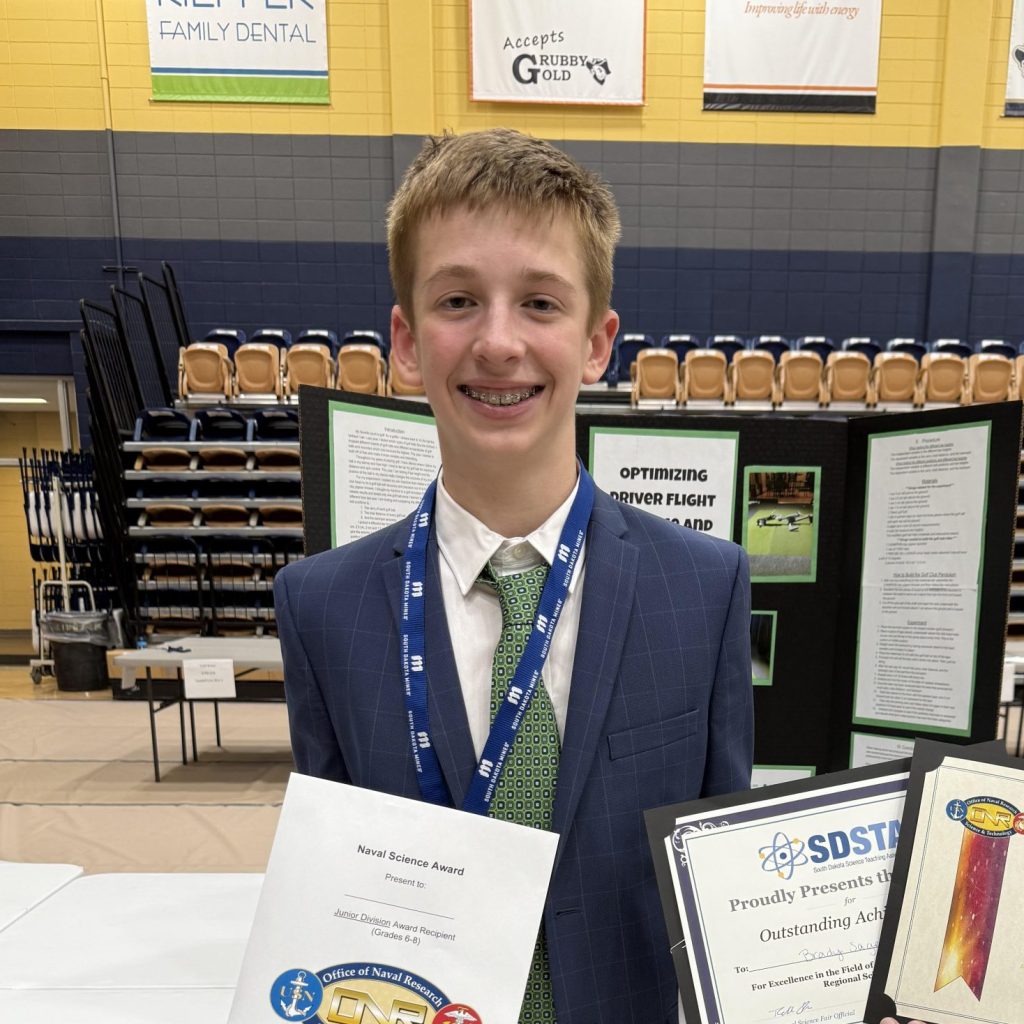RAPID CITY, S.D. – A student from St. Thomas More High School in Rapid City is a national finalist in a prestigious science competition.
Brady Sage, a freshman, was named one of the 30 national finalists in the Thermo Fisher Scientific Junior Innovators Challenge. The competition is considered the nation’s premier middle school science, technology, engineering and mathematics (STEM) competition. Sage’s project, “Optimizing Driver Flight Distance and Accuracy,” was chosen from an initial pool of tens of thousands of applicants.
His project earned him a spot in Finals Week in Washington, D.C. where he will compete for more than $100,000 in awards. The 30 finalists represent 10 states and Puerto Rico.
“I really had fun with my science project. I got to combine my love of golf and science,” Sage said. “I never thought my project would get this far. I was so surprised when they called to tell me I was in the top 30.”
Sage’s project was previously presented at the High Plains Regional Science and Engineering Fair at South Dakota Mines, where he won first place in the physical science category.
Carlene Roper, a science teacher at St. Thomas More, said Sage is an exceptional student and she is not surprised by his success.
“Brady is naturally a curious person, and he wants to know more about whatever we may be studying,” Roper said. “He asks the questions that stimulate more learning for all of us.”
Roper added that Sage is the first student from the school district to advance to the top 30 national finalists. The achievement has given other students at St. Thomas More the confidence to pursue projects in STEM.
As part of the recognition, St. Thomas More High School will receive $1,000 from the Thermo Fisher JIC to be used for STEM activities.
According to Maya Ajmera, president and CEO of the Society for Science, the organization that hosts the challenge, the young innovators in the competition are the nation’s most promising science and engineering talent.
“They are taking on complex challenges and demonstrating a passion for STEM that can lead to impactful change,” Ajmera said. “I am thrilled to celebrate their achievements.”
Dr. Karen Nelson, chief scientific officer at Thermo Fisher Scientific, praised the ingenuity of the finalists.
“Their ingenuity – and, most importantly, their ability to imagine solutions with lasting impact – set this group of aspiring innovators apart,” Nelson said. “Thermo Fisher is honored to support environments where young people can explore big questions, collaborate with peers and see themselves as the next generation of STEM leaders. By investing in their journeys, we help build a more inclusive, innovative future for all.”


